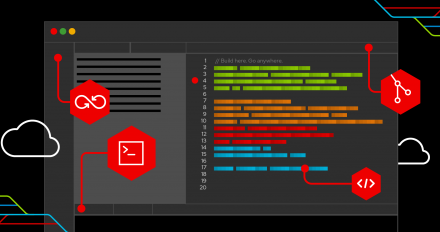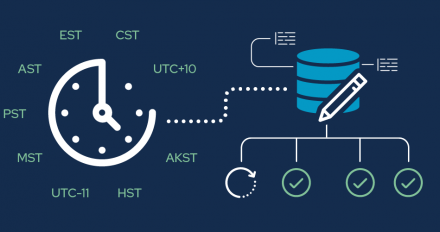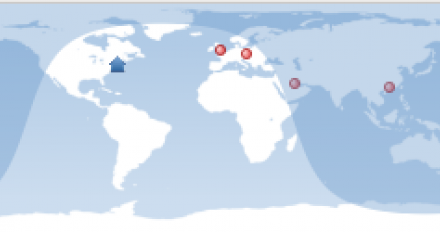Patsy Griffin
Patsy Griffin's contributions

Article
The Time Zone Database Package (tzdata) review for 2024
Patsy Griffin
A summary of key changes to the Time Zone Database (tzdata) in 2024.
 Article
Article
tzdata, the time zone database for RHEL: 2021 update
Patsy Griffin
Learn about the 2021 Time Zone Database (tzdata) updates for RHEL. The 2021 tzdata package merges geographic areas and accounts for historical time zones.

Article
2020 Time Zone Database (tzdata) changes
Patsy Griffin
Catch up with the open source Time Zone Database (tzdata) changes made in 2020 that were incorporated into Red Hat Enterprise Linux.

Article
What's new with tzdata: The time zone database for Red Hat Enterprise Linux
Patsy Griffin
Get an overview of changes to the tzdata package in 2019, as well as international time zone changes that could lead to package updates in 2020.

Article
Time zone data (tzdata): 2018 data format changes and Red Hat Enterprise Linux
Patsy Griffin
This article describes three variants of the tzdata time zone data format that were introduced in 2018 and how tzdata changes will be made in Red Hat Enterprise Linux
 Article
Article
Review of tzdata Updates for 2015
Patsy Griffin
The tzdata package includes data files documenting current and historic time zone transitions. Red Hat picks up tzdata updates within 24 hours of an upstream release. We modify the packaging files to pick up the new time zone transitions and thoroughly test to verify any changes prior to releasing on RHEL 4, 5, 6, and 7. For more information on this process see: https://developers.redhat.com/blog/2014/11/12/time-zone-data-tzdata-changes-redhat-updates/ 2015 included several updates to tzdata, not the least of which was the addition of a...

Article
Time Zone Data (tzdata) - Changes to the way Red Hat handle updates
Patsy Griffin
The tzdata package contains data files documenting both current and historic transitions for various time zones around the world. This data represents changes required by local government bodies, or by time zone boundary changes, as well as changes to UTC offsets and daylight saving time. Occasionally, tzdata changes are announced without a lot of lead time or with incomplete information. In these cases, we try to plan for different scenarios and rely on the upstream maintainer to make decisions based...

Article
The Time Zone Database Package (tzdata) review for 2024
Patsy Griffin
A summary of key changes to the Time Zone Database (tzdata) in 2024.

Article
tzdata, the time zone database for RHEL: 2021 update
Patsy Griffin
Learn about the 2021 Time Zone Database (tzdata) updates for RHEL. The 2021 tzdata package merges geographic areas and accounts for historical time zones.

Article
2020 Time Zone Database (tzdata) changes
Patsy Griffin
Catch up with the open source Time Zone Database (tzdata) changes made in 2020 that were incorporated into Red Hat Enterprise Linux.

Article
What's new with tzdata: The time zone database for Red Hat Enterprise Linux
Patsy Griffin
Get an overview of changes to the tzdata package in 2019, as well as international time zone changes that could lead to package updates in 2020.

Article
Time zone data (tzdata): 2018 data format changes and Red Hat Enterprise Linux
Patsy Griffin
This article describes three variants of the tzdata time zone data format that were introduced in 2018 and how tzdata changes will be made in Red Hat Enterprise Linux

Article
Review of tzdata Updates for 2015
Patsy Griffin
The tzdata package includes data files documenting current and historic time zone transitions. Red Hat picks up tzdata updates within 24 hours of an upstream release. We modify the packaging files to pick up the new time zone transitions and thoroughly test to verify any changes prior to releasing on RHEL 4, 5, 6, and 7. For more information on this process see: https://developers.redhat.com/blog/2014/11/12/time-zone-data-tzdata-changes-redhat-updates/ 2015 included several updates to tzdata, not the least of which was the addition of a...

Article
Time Zone Data (tzdata) - Changes to the way Red Hat handle updates
Patsy Griffin
The tzdata package contains data files documenting both current and historic transitions for various time zones around the world. This data represents changes required by local government bodies, or by time zone boundary changes, as well as changes to UTC offsets and daylight saving time. Occasionally, tzdata changes are announced without a lot of lead time or with incomplete information. In these cases, we try to plan for different scenarios and rely on the upstream maintainer to make decisions based...
